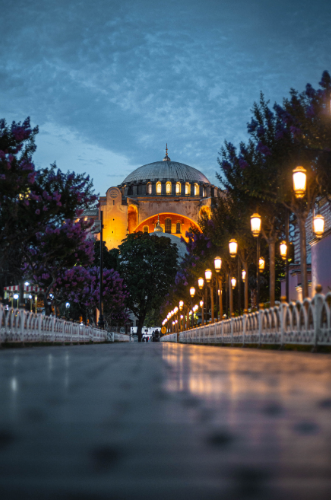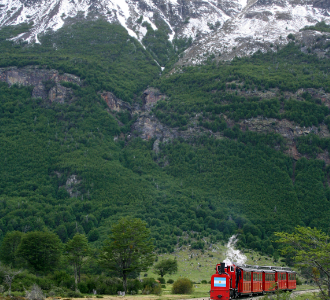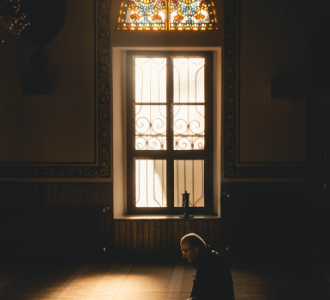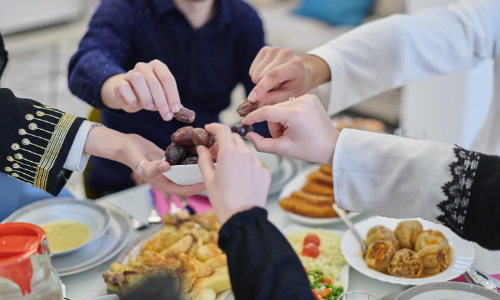Not so long ago, learning about the Ramadans of a hundred years past leaves one in awe, as if uncovering the veil of another realm. It’s astonishing, almost as if those who experienced the humanity, understanding, and camaraderie of those Ramadans weren’t our ancestors. And we think, when Islamic life was truly lived, how it adorned the society with unparalleled virtues…
In today’s world, where both Islam and humanity are increasingly forgotten, Ramadan still persists as a month of peace. It continues to refresh our hearts with the joy of feeling our humanity and Islam more profoundly. Thanks to it, our society can find some relief from the suffocating extents of both material and spiritual anarchy.
Yes, despite everything, Ramadan manages to reach even the hardened hearts with its sweet breeze. This situation is a joyous sign of faith for our nation.
Ah, the old Ramadans… A civilization in themselves, a spiritual festival that brightened hearts and souls alike, along with towns and minarets…
Ramadans that significantly reduced the gap between the rich and the poor, bringing together people of all ranks and genders in mosques, strengthening the national unity that already existed.
The Ramadans we long for were lived as an integral part of the civilization we’ve abandoned… Now, we are in the Ramadans that are on the verge of vanishing along with our forgotten or deliberately erased civilization.
We must revive the civilization of our Ramadan that is on the brink of disappearing with the absent alms and charities, along with the lights of the minarets and lanterns. Otherwise, we will remain confused and indecisive, unable to change our own course or mimic another’s. We will suffer, trapped in impasses and dilemmas.
Leaving aside the Ramadans of our civilization’s glorious eras, even those lived in recent times used to sweeten society’s taste with envy. Let’s now take a glance at our Ramadan civilization or the Ramadans of our civilization through a few lines from those “masters of the pen” who experienced those days.
Semih Mümtaz describes those days as follows:
“They would wait. Once the sighting of the moon was confirmed, they would go to the Sheikh al-Islam’s door to announce it, validating that the moon was faintly visible.
Then, they would first report to the Caliph of the Earth, that is, the Sultan, and at the same time, declare Ramadan.
Mosques would light their lanterns and mahyas. Watchmen would play their drums. The Tarawih prayer would start that night. After this prayer, people leaving the mosques were free to do as they pleased.
During the day, they were engaged in worship and obedience. Government offices would also close early and they would hold a kind of vigil in between. Breaking the fast in public was forbidden.
Those not fasting were careful not to eat or drink in front of those who were fasting. The police would catch those who showed disregard. Even Christian employees working at Babıali respected this ban. If they desired water, they would drink in secret, not asking Muslim servants to fetch it for them.
Carrying the blessed Mushaf in their pockets and reading the Qur’an in mosques was a common practice among many. And indeed, the handwritten Mushafs were magnificent.
In those times and before, great respect was paid to handwritten blessed Mushafs, resulting in the training of excellent calligraphers.
Another noticeable feature of Ramadan was the abundance it brought to everyone. Both the poor and the rich would be satisfied, happy. Part of this might be due to the general salaries given at the beginning and end of Ramadan: Debts would be paid, new credit would be obtained from tradespeople; a pantry specific to Ramadan would be secured, and some houses would receive tooth rent.
Many houses would set up tables for the poor; they would serve meals to the poor every evening at iftar. Some houses even provided provisions to the poor families in their neighborhoods.
To tell the truth, although the entertainments were limited, the entertaining aspects were boundless.”
Ramadan: The Month of Renewal
İbrahim Alaeddin (Gövsa) compares the Ramadans he experienced with those of today or half a century ago:
“With the arrival of Ramadan, a change is noticeable throughout the city.
But all these preparations still pale in comparison to the Ramadans of thirty or forty years ago.
This Ramadan, double-minareted mosques once again showed their respect for this blessed month with beautiful and skilled writings like ‘Welcome, O Sultan of Twelve Months.’
Confectioners lined up copper jam jars decorated with white muslin in front of their shops. Pita and bagel sellers, as they used to, filled the air with their fragrant, ringing voices. But somehow, we still yearn for the old Ramadans.”
How can we forget the old Ramadans and old times? When Ramadan arrived, everyone—as it is still somewhat today—would start to behave differently, livelier and more noticeable. Grocers would decorate their shops with Kayseri pastırma wrapped in colorful papers; they would bring in wheel-shaped kaşar cheese, line the shelves with ghazawies (special sacks) of Egyptian rice.
They would compete to sell Aleppo’s Hadidi oil. Pasta factories would produce new types of pasta, special for Ramadan; güllaç workshops would open; rosary sellers, oil merchants would start new activities.
Families would start their Ramadan cleaning a week in advance.
Everything would be cleaned and swept, new linens prepared, pots tinned, broken dishes replaced; new dining, sherbet, and jam sets were bought, and a month’s worth of groceries would be arranged all at once. Even children’s allowances were increased. In short, the money saved throughout the year for Ramadan would be spent in a few days.
Nowadays, Ramadan still arrives—as children chanting behind the Ramadan herald say—but it comes not just with empty baklava trays but with empty hands as well.
We can’t find the old flavors in our language and soul. We don’t even know why.
Could the reasons that dulled our senses of pleasure and entertainment be the exhaustion from consecutive wars?
Even though the Balkan War, World War I, and the Independence War have been over for years, the old taste is still missing from our language and soul. We hope not to be deprived of the understanding to feel this absence.”
Source: Veli Sırım, “Kaybolmaya Yüz Tutmuş Ramazan Medeniyeti”, Yeni Ümit, Issue: 43, 1999.




